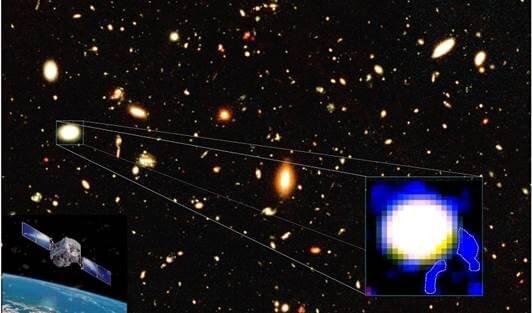
An international team of researchers has observed part of the formation of a dwarf galaxy, helping to explain how they evolve from a dwarf state to maturity. In their paper published in the journal Nature, the group describes finding evidence of maturation in such galaxies.
Prior research has shown that there are dwarf galaxies in the universe. Such galaxies are typically made up of just a few billion stars, as compared to mature galaxies such as the Milky Way, which have 200 to 400 billion stars. Prior research has also suggested that some dwarf galaxies might evolve to become more mature galaxies, but how that might happen has not been clear. In this new effort, the researchers focused the AstroSat space-based telescope on several blue compact dwarf galaxies, which are calculated to be approximately 1.5 to 3.9 billion light-years from Earth. The team then used the ultraviolet imaging telescope aboard AstroSat, which is India’s first multi-wavelength space telescope, to look for evidence of star formation activity.
Prior efforts to observe star formation in dwarf galaxies have been hindered by their low luminosities, small size and the low mass of the objects they contain. These problems have been overcome with AstroSat due to the high resolving power of its telescope and because of its ability to capture multiple wavelengths of light at the same time, and also because it was fitted with UV deep field imaging technology.










 עברית (Hebrew)
עברית (Hebrew)